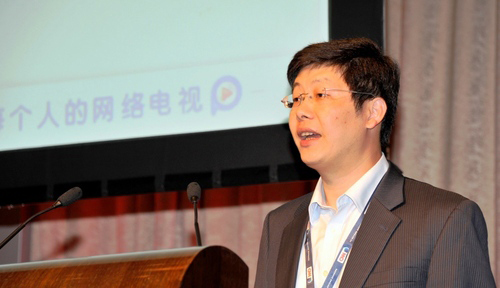
Ancillary Feature
Entertainment executives put on brave faces today, outlining optimistic expansion trends and development plans, despite the current financial market turmoil that threatens to shake underling economies. Digital media was forecast to throw up considerable change and new opportunities.
Speaking at the Asia Media Summit, organised annually in Hong Kong by his research firm Media Partners Asia, media analyst Vivek Couto said that the outlook in Asia is "still buoyant despite the pullbacks."
He pointed to the continuing growth of online media usage in India and China, and said that online advertising in South East Asia could grow from 14% to 20% of advertising spend in the next five years. He suggested too that print and TV markets are still growing in India and that the competition for satellite and digital rights represent significant new revenues for the film industry.
And Couto pointed to macro-economic trends as also helping Asian media. Even as economies in the rest of the world slow down, Asia is widely forecast to become less export dependent and more focussed on domestic consumption. That will in turn boost advertising in the region.
Some of the media bosses present used the conference platform to hint at future film business developments:
The development of online video and the continuing digital development of other media were recurrent themes throughout the day with potential impact for film.
Barry Cupples, Asia-Pacific CEO at ad giant Omnicom Media, said that "Facebook is the entertainment platform to watch over the next two years." Warner Bros and Miramax movie streaming deals with the giant social network group may be followed by others. Other speakers pointed to Netflix's recent launch in Japan as likely to be followed in other Asian territories.
Chawla pointed to the way that cinema ticket prices in India have increased four or five fold in some places as demonstration that India's famously reluctant customers can be made to pay for content.
Describing a "golden age" ahead, he also said that digitisation of cable networks, the spread of direct-to-home (DTH) satellite services, price deregulation and tougher negotiating by channel owners with platform operators could all provide greater revenues for rights owners in coming years
Developments in the Chinese online video proved a particularly hot subject at the conference.
Kun Zhang (pictured), VP of corporate development at Chinese video and TV site PPLive, described the company as one of the China's largest media companies and as "an open platform for professionally-produced content." It has available over 1,000 movies, which is which it is making available for cross-terminal delivery, meaning that a client can potentially start watching a title on a PC, continue on a tablet computer and finish it on a domestic TV set.
He was besieged by questions about the legality of the content, which also includes valuable English Premiere league football, carried by PPLive. "We probably spend most on content of any [video] company in China," he said, sourcing either from rights owners or from CCTV. "But sometimes copyright ownership is not clear."
Challenged further, he said that all Chinese video sites are involved in copyright skirmishes. "There are many lawsuits filed in the Pudong [Shanghai] commercial courts, but we represent 5% compared with some of our competitors," he said.
While Kun's answers appeared to please few people at the conference, others said that cooling investor sentiment towards the Chinese online sector is already a reality brought on by concerns about company accounts and management quality. They pointed to the cancellation of last month's planned share sale by video site Xunlei and the poor rating of the newly floated shares of another Tudou.
"The China video market will benefit from increases in scale and from [corporate] consolidation," said media investor Tony Holt, executive director and co-head of TMET at Australia's Macquarie.